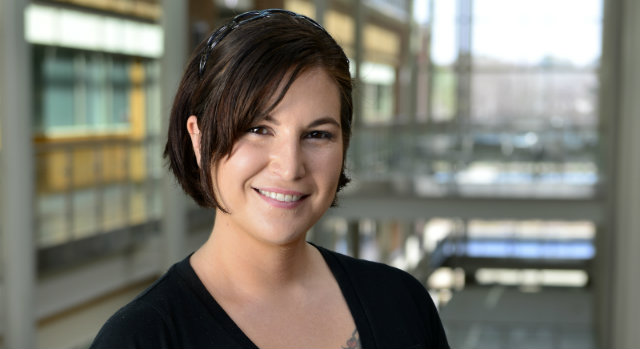STEVENS AND SCHWEITZER RECEIVE $216K TO STUDY BLACK SEA BASS HABITATS NEAR OCEAN CITY, MD

Bradley Stevens, Ph.D., the distinguished research scientist for the NOAA Living Marine Resources Cooperative Science Center (LMRCSC) at the University of Maryland Eastern Shore received a $216,394 grant from the Atlantic Coastal Fish Habitat Partnership (ACFHP). Stevens and his advisee, Cara Schweitzer, an LMRCSC-funded Ph.D. student in the Marine, Estuarine and Environmental Sciences Program, will use the funds to study black sea bass habitat characteristics, fish abundance, and fish diets near Ocean City, Maryland. Their project is titled, “Hab in the MAB: Characterizing black sea bass habitat in the Mid-Atlantic Bight.”
The ACFHP received the funding for this project from the Mid-Atlantic Fishery Management Council in August of 2015, and then conducted their own request for proposals dedicated to research and/or restoration addressing black sea bass habitat issues in the Mid-Atlantic region.
“The ACFHP looks forward to working with the University of Maryland Eastern Shore, Mid-Atlantic Fishery Management Council, ASMFC Artificial Reef Committee, and National Fish Habitat Fund (as the granting agency) on this project over the next few years,” said Lisa Havel, Ph.D., the ACFHP Coordinator. “[We are] confident in Dr. Stevens’ and Ms. Schweitzer’s ability to collect results that will inform both science and management.”
According to Stevens, there is currently little published data on the importance of habitat or prey community structure on black sea bass feeding ecology. This project aims to help determine if there are differences between artificial and natural habitats. The team will use SCUBA, photography, videography, controlled angling, and stable isotope analysis to conduct this research.

